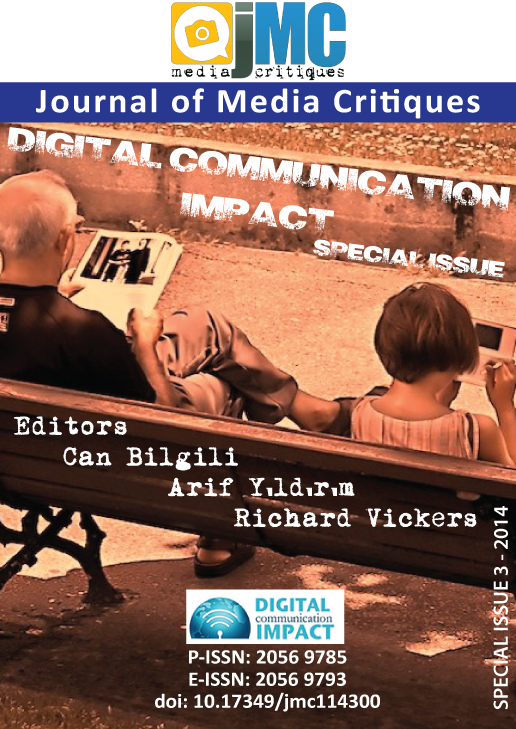ARE WE DIGITAL MASTERS OR CAPTIVES? A CRITICAL EVALUATION OF PANOPTIC VERSUS SYNOPTIC EFFECT OF SURVEILLANCE IN SOCIAL MEDIA
ARE WE DIGITAL MASTERS OR CAPTIVES? A CRITICAL EVALUATION OF PANOPTIC VERSUS SYNOPTIC EFFECT OF SURVEILLANCE IN SOCIAL MEDIA
Author(s): Erdem Öngün, Aşkın DemirağSubject(s): Media studies, Social Philosophy, Theory of Communication, Social psychology and group interaction, Social development, Social Informatics, ICT Information and Communications Technologies
Published by: University of Lincoln and World Experience Campus Foundation
Keywords: digital communication; social media; surveillance; panopticon; synopticon; selfcaptivation; self-affirmation; self-construction;
Summary/Abstract: The era we are living in is the one where we are exposed to a massive attraction of social connectivity based widely on digital forms of media. The most common one of them is social media. Social media exposes us to a kind of virtual Panopticon where ‘the few’ watch ‘the many’ in architecture of surveillance. Another term related to surveillance is Synopticon, a system where ‘the many’ watch ‘the few’ in the “Viewer Society”. In the light of the related literature of theory and practice in the area, the study aims at viewing social media tools and its users from a critical perspective in a descriptive manner. To be able to do this, the study develops a set of hypothetical questions whose answers are instrumented to find out whether there is truly such a thing as “Virtual Panopticon” or “Synopticon” and if so, to what extent and how the Panoptic versus Synoptic effect of social media are felt among its users in various applications in light of media and communication. Facebook, based on the current theoretical knowledge within the field of surveillance can be given as an example. The study concludes with an overview of both assumptions with further reflections and contemplations of the readers of the study, who implicitly or explicitly could also be the actors of social media as masters or captives.
Journal: Journal of Media Critiques
- Issue Year: 1/2014
- Issue No: Special
- Page Range: 27-42
- Page Count: 16
- Language: English

